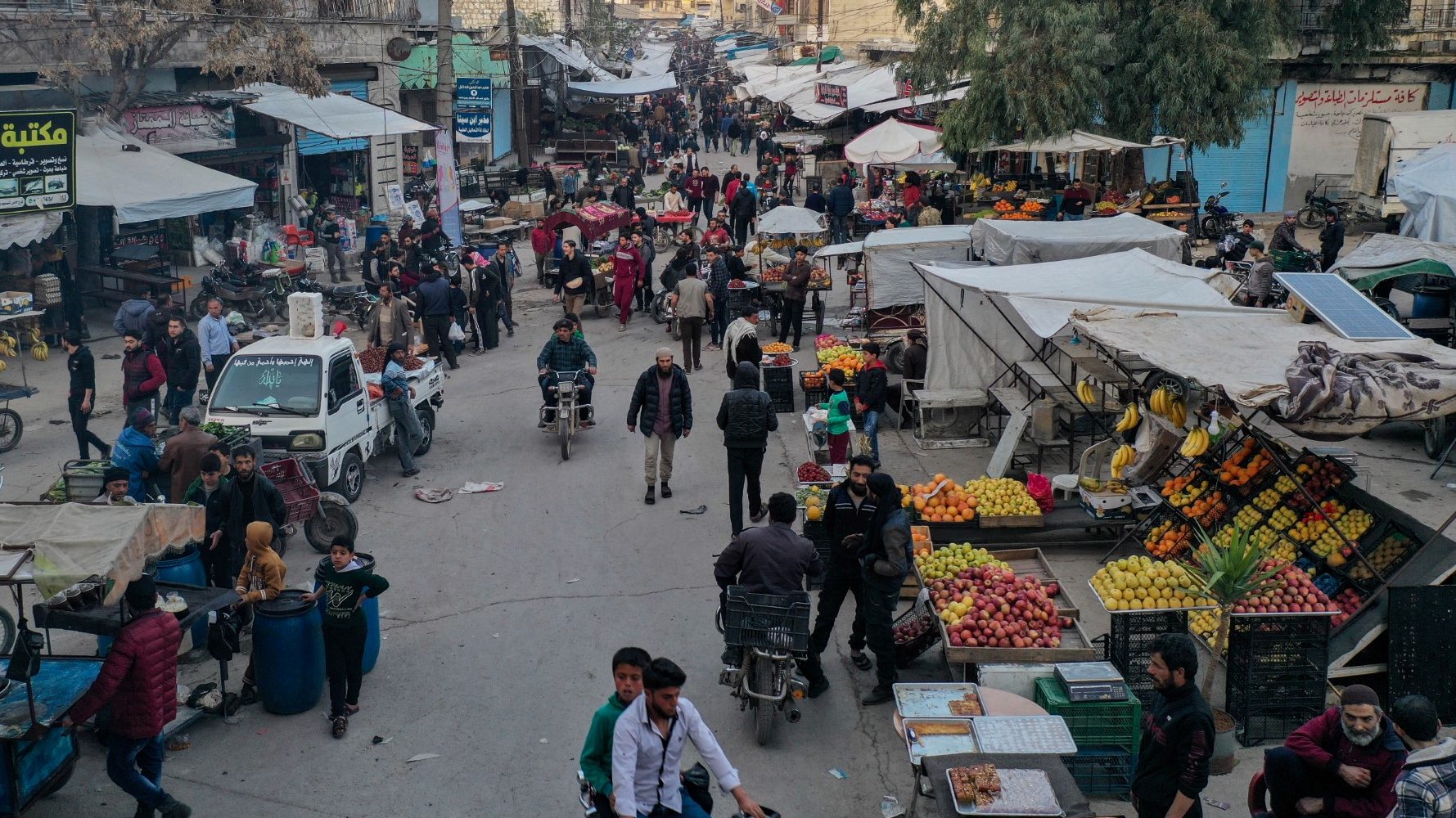Last Tuesday, the Syrian pound collapsed to 3,785 Syrian pounds against the U.S. dollar, constituting a drop of around 115 Syrian pounds within a week. The currency has been impacted by the war in Ukraine and sanctions imposed on Russia, as prices for consumer goods and food rose “insanely” in the markets; for some goods, price hikes exceeded 40%.
The crash is due to Syria’s significant trade relations with Russia, as well as banking relations primarily through remittances. These factors have left Syria severely exposed to Western sanctions against Moscow.
Russia’s Western sanctions on Syria
According to the Russian ambassador to the regime Alexander Yefimov, trade between Russia and Syria last year tripled.
“Many products in the Syrian market have become dependent on Russian suppliers in various sectors, such as wheat and others,” said Mohammed Samer al-Khalil, the regime’s minister of economy and foreign trade, in October last year.
According to this evidence, Western sanctions on Russia will have negative and rapid repercussions on the Assad regime’s economy, as indicated by government and non-governmental statements about the definite impact on Syria as a result of the war. This impact has manifested in high prices and scarcity of some goods—especially oil, wheat, and other commodities— which prompted citizens to rush to buy and stockpile food for fear of higher prices and loss of markets from obstruction of imports. In fact, the move resembled people’s eagerness to stockpile essentials after government statements in 2020 about public lockdowns due to the COVID-19 pandemic.
The month of Ramadan approaches
Another factor that pushed Syrians to buy and store is the approaching month of Ramadan. It is normal for prices to rise as the holy month approaches, compounding fears of a crazy rise in prices already skyrocketing due to the war. Therefore, many consumers went to spend their savings on buying major goods, which drove up prices further, due to increased demand.
Read Also: Prices Surge Across all Regions in Syria
The price of vegetable oil increased from 8,000 pounds to 11,000 pounds per liter —if it was even available. Indeed, oil became scarce in markets as soon as economists warned that the supply of oil could be impacted. Meanwhile, the price of rice increased to 6,500 pounds; and one type of date, that was 10,000 pounds recently, rose to 14,000 pounds. The price rises affected other staple products to varying degrees, such as sugar, coffee, canned milk, flour, vegetables, and fruits.
The rush of Syrians to buy, stockpile, and spend their savings quickly increased liquidity in the market, causing a shock. The sudden spending helped accelerate the Syrian pound’s devaluation. Experts indicate that another trend will follow after stockpiling, which is the hoarding of dollars. This will drive up demand and thus drive the Syrian pound’s depreciation even further.
Syrians were driven into fearful panic buying by recent statements quoted from a recent emergency meeting of the regime’s government. As quoted, the meeting confirmed that necessary measures are being taken to manage the available stores of basic products (wheat, sugar, oil, rice, and potatoes) over the next two months. The meeting resolved to study all options to supply those goods by various means, indicating a bad state of affairs.
Ayoub Arish, a senior adviser to the regime’s prime minister, said the Ukrainian crisis has wide-ranging implications for the global economy, including Syria’s economy. He predicted that prices of most goods and especially wheat supplies will increase.
According to Sky News, Syrian markets will see an unprecedented rise in prices, on a daily basis, for various commodities—especially bread.
Kelly Petillo, a Middle East and North Africa analyst at the European Council on Foreign Relations, warned that a humanitarian crisis in Ukraine due to the war would inevitably divert funding and emergency resources towards Ukraine. This move would impose pressure on the humanitarian aid program for refugees from Middle Eastern countries, including Syrians at home and in neighboring countries.
This article was translated and edited by The Syrian Observer. The Syrian Observer has not verified the content of this story. Responsibility for the information and views set out in this article lies entirely with the author.


